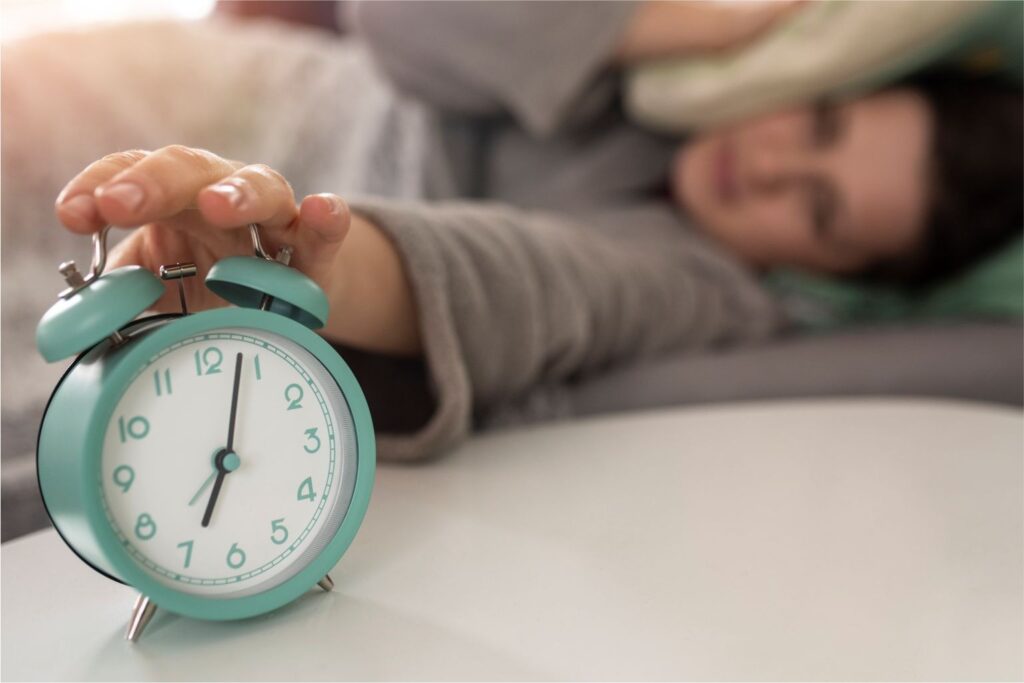
Think that snooze button and those extra 10 minutes after your alarm rings are helping you feel more rested? Think again.
A recent study by Mass General Brigham reveals that hitting the snooze button on your morning alarm can disrupt some of the most restorative parts of sleep and also lead to daytime grogginess. On average, snoozers delayed getting out of bed by about 11 minutes.
Also Read | 56% slower response, 10% lower accuracy: Study shows PCOS impacts women’s focus
The study analysed data from over 21,000 users and over three million sleep sessions from a sleep app. The team found that nearly 56 per cent of sleep sessions ended with users hitting the snooze button. Frequent users, who relied on it over 80 per cent of mornings, averaged an extra 20 minutes of sleep. But these frequent snoozers also showed more irregular sleep patterns than those who snoozed less often, the researchers concluded.
“That first alarm may interrupt vital stages of sleep, and anything that you might be able to get after hitting the snooze alarm is probably going to be low-quality and fragmented sleep,” said lead author Rebecca Robbins, PhD, in the Division of Sleep and Circadian Disorders Medicine at Brigham and Women’s Hospital, in a press release.
According to the research, snoozing disrupts REM (rapid eye movement) sleep. During sleep, the brain moves through different neurological stages, with the latter half of the night largely consisting of REM sleep. This stage, when most dreaming occurs, plays a vital role in memory consolidation and cognitive performance, said Robbins.
“The hours just before waking are rich in rapid eye movement sleep. Hitting the snooze alarm will interrupt these critical stages of sleep and typically only offer light sleep in between snooze alarms,” she added.
The study also found that the snooze button was used more during the workweek, i.e., Monday to Friday, and Wednesday was the peak snooze day. Sunday was the “least likely to snooze” day. It also found that people who slept fewer than five hours were less likely to snooze. Snoozing was highest in the US, Sweden, and Germany, and lowest in Japan and Australia. The duration of snooze alarm use was significantly longer among women than men.
The team recommends public health campaigns encouraging people to set their alarms for the latest possible wake-up time instead of relying on snooze as a way to foster healthier sleep habits.








